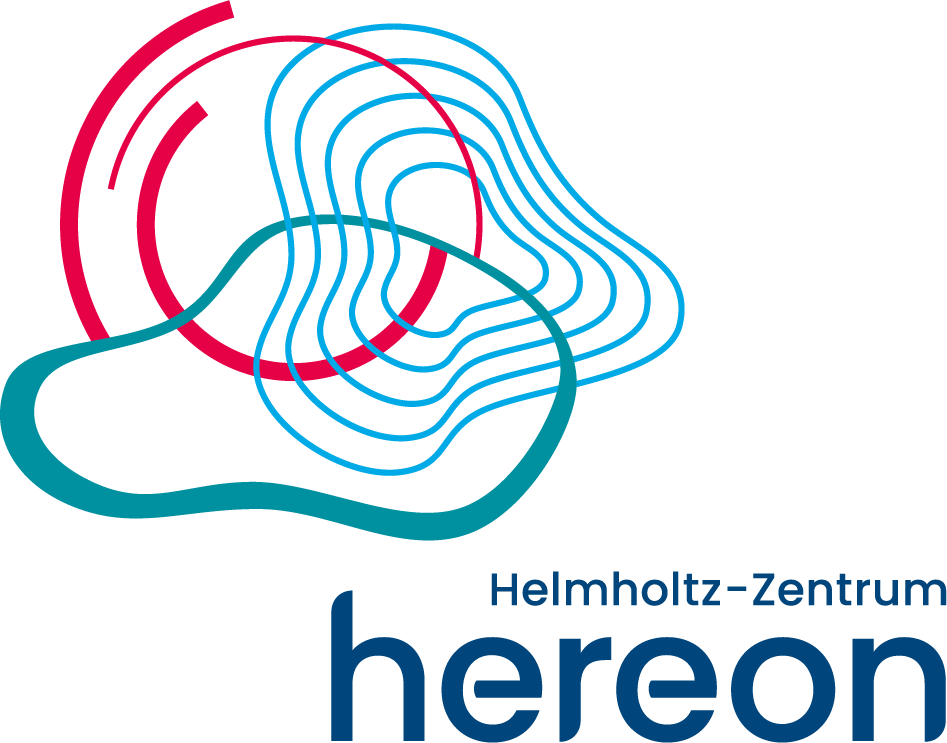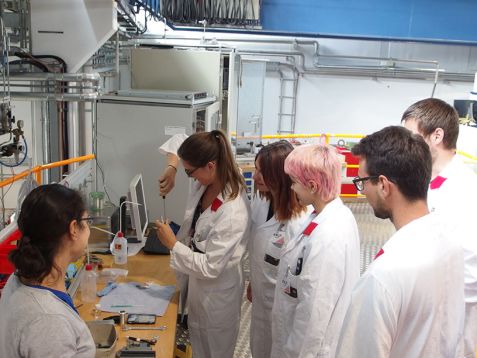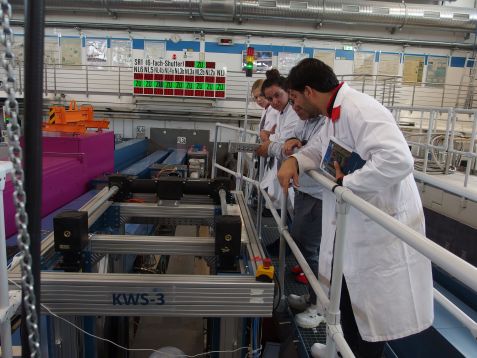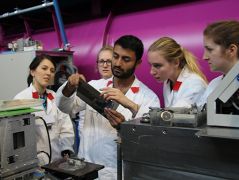MLZ is a cooperation between:
 > Technische Universität München
> Technische Universität München > Helmholtz-Zentrum Hereon
> Helmholtz-Zentrum Hereon
 > Forschungszentrum Jülich
> Forschungszentrum Jülich
MLZ is a member of:
 > LENS
> LENS > ERF-AISBL
> ERF-AISBL
MLZ on social media:

MLZ (eng)
Lichtenbergstr.1
85748 Garching
04.11.19
Practical course for prospective neutron scatterers

For years now, the proportion of women at the Labcourse has been very high. This year it was at 36 percent. © Olaf Holderer / Forschungszentrum Jülich
55 students from 13 different countries participated at the Jülich Centre for Neutron Science Labcourse at MLZ this year. They learned neutron scattering in lectures in Jülich and experiments at the research neutron source in Garching.
The labcourse aims to give a realistic insight into the experimental techniques of neutron scattering and the scientific potential of neutrons. The theoretical part took place in the first week in Jülich, the practical part in the second week at twelve different scientific instruments at the Heinz Maier-Leibnitz Center in Garching. In small groups, the students got to know at least five of the instruments.

Due to the reactor pause, the students were also able to approach components that are not accessible during operation of the neutron source, here at the small angle scattering facility KWS-3. © Olaf Holderer / Forschungszentrum Jülich
Although it was only possible to perform exercises with already measured data, due to the unplanned reactor pause, the students were impressed by the opportunity to see components of the instruments that would have been inaccessible during operation.
Students from various disciplines such as chemistry, physics, materials science, geosciences and engineering, biology, and from a total of 15 different countries, participated in the course, as instructor Dr. Reiner Zorn reports. More than a third of the participants were female.
These prospective neutron scatterers are now well prepared to apply for measuring time at the MLZ in order to use the experimental techniques for their own research.
Additional information:
The JCNS Laboratory Course took place for the 23rd time this year and was requested for the first time by three EU projects: SINE 2020, SoftComp and EUSMI.
Related News
-
15.09.2014
Insight into neutron scattering
MLZ is a cooperation between:
 > Technische Universität München
> Technische Universität München > Helmholtz-Zentrum Hereon
> Helmholtz-Zentrum Hereon
 > Forschungszentrum Jülich
> Forschungszentrum Jülich
MLZ is a member of:
 > LENS
> LENS > ERF-AISBL
> ERF-AISBL
MLZ on social media:



